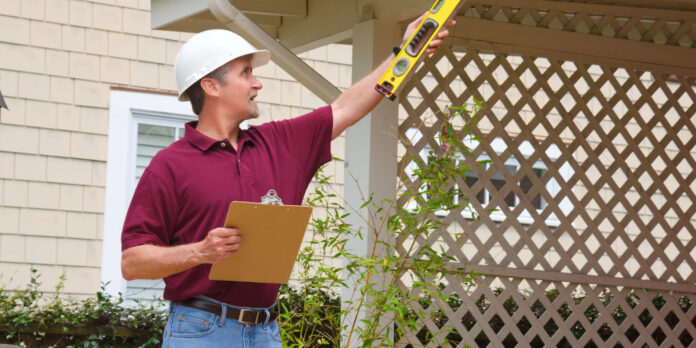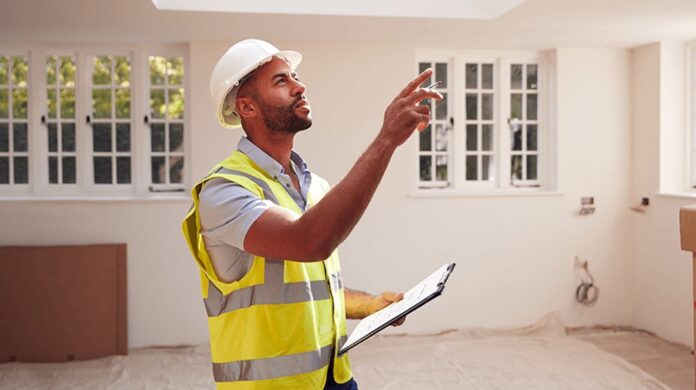When it comes to maintaining your home and boosting its value, you cannot rule out the need for a home inspector. A home inspector is a professional who examines and evaluates the condition of residential properties. Potential buyers or homeowners typically hire them to assess the overall condition of a home before a sale or as part of a routine maintenance check.
The primary goal of a home inspector is to identify any existing or potential issues with the property, such as structural defects, electrical or plumbing problems, safety hazards, or code violations. They thoroughly inspect various home components, including the foundation, roof, walls, plumbing systems, electrical systems, heating and cooling systems, insulation, and more. After the inspection, they provide a detailed report outlining their findings and recommendations for repairs or further investigation. With this information, you can make informed decisions about purchasing a property and homeowners to address any maintenance or safety concerns.
When buying or owning a property, there are several benefits to hiring a home inspector

Here are some key advantages:
Knowledge and Expertise: Home inspectors are trained professionals with expertise in evaluating the condition of residential properties. They know building codes, construction standards, and common issues found in homes. Their experience and understanding can help identify potential problems that may go unnoticed by an untrained eye.
Comprehensive Evaluation: Home inspectors such as Rümi thoroughly assess the property, examining its various systems and components. They inspect the structure, foundation, roof, plumbing, electrical systems, HVAC (heating, ventilation, and air conditioning), insulation, and more. This comprehensive evaluation provides a detailed understanding of the property’s condition.
Unbiased Assessment: Home inspectors are independent and objective. They do not have any personal interest in the outcome of the inspection, which ensures an unbiased assessment of the property. This impartiality allows you to receive an honest evaluation of the home’s condition, helping you make informed decisions.
Issue Identification: Home inspectors are trained to identify existing or potential issues in a property. They can detect problems like structural defects, water damage, mold, faulty electrical wiring, plumbing leaks, and safety hazards. Uncovering these issues allows you to negotiate repairs with the seller or plan for necessary maintenance and improvements.
Cost Estimation: A home inspector’s report often includes estimates for the cost of repairs or replacements needed for identified issues. This information can help you assess the potential expenses of maintaining or improving the property. It lets you make informed decisions about your budget and prioritize repairs or renovations.
Negotiation Power: If the home inspection reveals significant issues, you can use the findings to negotiate with the seller. You may request repairs, credits towards the purchase price, or a reduction in the asking price to account for the necessary fixes. The inspection report serves as evidence and strengthens your position during negotiations.
Peace of Mind: Hiring a home inspector provides peace of mind, especially when making a significant investment in a property. Knowing the home’s condition and any potential issues allows you to make informed decisions and helps prevent surprises or unexpected expenses down the line.
What Should You Consider When Hiring a Home Inspector?

When hiring a home inspector, it’s essential to consider certain factors. Here are some tips to help you find a reputable and competent home inspector:
Research and Credentials: Start by researching home inspectors in your area. Look for licensed or certified professionals who have proper credentials. Check if they belong to professional organizations such as the American Society of Home Inspectors (ASHI) or the International Association of Certified Home Inspectors (InterNACHI). These organizations often have strict standards and codes of ethics that their members must adhere to.
Experience and Track Record: Consider the inspector’s experience in the field. Look for someone who has been conducting inspections for a significant period and has a track record of providing thorough and reliable assessments. Experienced inspectors are more likely to have encountered various issues and can offer valuable insights.
Sample Reports: Ask potential home inspectors for sample inspection reports they have prepared for previous clients. Review these reports to assess the level of detail and clarity they provide. Look for comprehensive assessments, clear explanations, and accompanying photographs if applicable. A well-prepared and easy-to-understand report is essential to comprehend the inspector’s findings fully.
Reviews and Recommendations: Check online reviews and testimonials from past clients. Look for feedback on the inspector’s professionalism, knowledge, and responsiveness. Additionally, seek recommendations from friends, family, or real estate professionals who have had positive experiences with home inspectors in the past.
Insurance and Liability Coverage: Inquire about the inspector’s insurance coverage. A professional home inspector should carry errors and omissions (E&O) insurance or liability insurance to protect both parties in case of any errors or omissions in the inspection process.
Inspection Scope and Equipment: Discuss the inspection scope with potential candidates. Ensure that they will thoroughly assess all major systems and components of the property. Additionally, inquire about the tools and equipment they use during inspections. A competent home inspector should have appropriate tools, such as moisture meters, electrical testers, and thermal imaging cameras, to aid in their evaluation.
Communication and Availability: Choose a home inspector who communicates clearly and promptly. They should be available to answer any questions or concerns you may have before, during, and after the inspection. Good communication ensures that you clearly understand the inspection process and the inspector’s findings.
Cost and Timelines: While price shouldn’t be the sole determining factor, it’s essential to consider the inspection cost and compare it with other professionals in your area. Additionally, inquire about the expected timeframe for completing the inspection and receiving the final report.
Conclusion

Basically, if you consider these tips and conduct thorough research, you can hire a competent and reliable home inspector who will provide you with a comprehensive assessment of the property’s condition. Finally, hiring a home inspector is a wise investment that can save you money, protect your interests, and provide valuable insights into the condition of a property.









